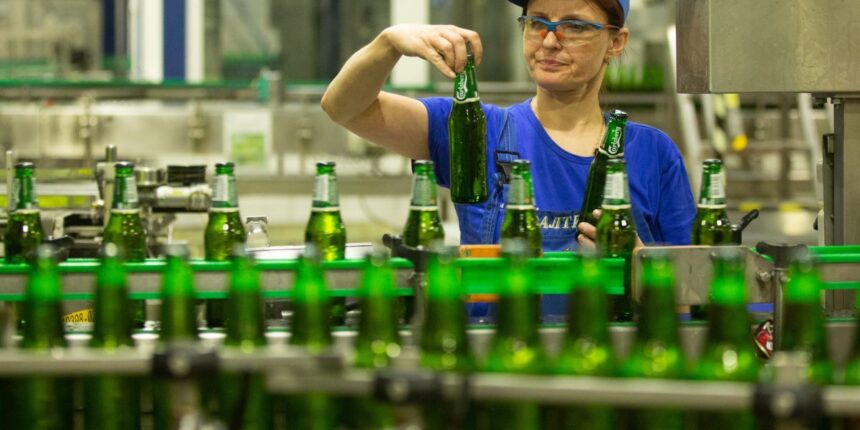
Brewer Carlsberg’s subsidiary in Russia, which produces the most widely sold beer in the country, could potentially be nationalized under the Kremlin’s control, throwing a wrench at efforts to sell the business.
Cees ’t Hart, Carlsberg’s CEO, admits he was “shocked” at how the Danish brewer’s Russian operations were seized by authorities and is worried that under extreme circumstances, Baltika Breweries may wind up being nationalized.
“If you take the two extremes, we could be pushed back to the previous process [of approval of a sale], or to nationalization. We don’t know which direction it will go,” Hart said in an interview with the Financial Times published Wednesday.
St. Petersburg-based Baltika has sprawling operations with eight breweries and more than 8,000 employees. The local brewers held 27% of Russia’s $16 billion beer market.
The company successfully found a buyer for Baltika earlier this year, but in a surprise move, the Kremlin took control of operations within weeks of the deal.
“In June, we were pleased to announce the sale of the Russian business,” Hart said in a statement Wednesday. “However, shortly afterward, we were shocked that a presidential decree had temporarily transferred management of the business to a Russian federal agency.”
Taimuraz Bolloev, a former Baltika president and friend to Russian President Vladimir Putin, was made the brewer’s director following the state’s seizure.
Putin’s reasoning for doing so was because Carlsberg put “pressure” on Russian citizens and employees if they expressed “a certain civil stance.”
Hart denied claims of pressurizing employees.
Several international brands, including fast food chain McDonald’s, divested from Russia after its invasion of Ukraine but they didn’t all face tough exits like Carlsberg is experiencing.
Dutch brewer Heineken is still looking for buyers in the country.
Carlsberg’s Russian wrangle
Carlsberg announced plans to sell its Russia business in 2022, just months after the Ukraine war began.
The brand was initially skeptical about the impact of a potential Baltika sale on its business given that its Russia and Ukraine operations accounted for roughly 13% of its group revenue.
But ultimately, Carlsberg followed a slew of international businesses that chose to retreat from the country, saying it was “the right thing to do in the current environment.”
The sale was inked in June, over a year after Carlsberg announced its intent, with details of the buyer and the purchase amount left undisclosed.
“The signing of an agreement to sell the Russian business is a very important milestone in the highly complex separation and selling process,” Hart said in a statement announcing the sale.
But just weeks after the announcement, Moscow seized control of Carlsberg’s operations under a decree targeting “unfriendly countries.”
The Danish giant still holds the title of Baltika’s shares, but has lost control of the company and contact with its employees since the takeover, according to the Financial Times.
Carlsberg did not immediately return Fortune’s request for comment.
Strong path ahead despite Baltika’s tussle
Despite Carlsberg’s ongoing tug-of-war with its Baltika operations, the company reported strong earnings for the first half of 2023.
The group reported 11.2% revenue growth and a 5.2% increase in operating profits between January and June compared to the same period last year.
It also raised its profit forecast for the year to 7% from a lower estimate earlier.
Hart will retire as CEO at the end of September.








